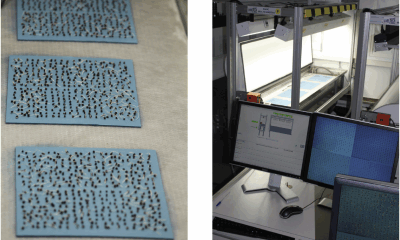Education
Research Reveals Multitasking May Hinder Brain Function

Cognitive research suggests that multitasking, often celebrated as a valuable skill, may actually hinder brain function. Despite the common belief that the human brain can efficiently manage multiple tasks simultaneously, studies indicate that it primarily switches between tasks rather than performing them concurrently. This constant toggling reduces overall focus and diminishes the quality of output.
The brain’s limitations become evident when individuals attempt to juggle several responsibilities at once. Tasks that require concentration suffer, as the brain is unable to fully engage with more than one activity. This phenomenon can lead to decreased productivity and a feeling of overwhelm, particularly in high-pressure environments. Many people engage in multitasking due to time constraints rather than choice, but this habit can have long-term detrimental effects on cognitive performance.
Understanding the Risks of Multitasking
According to psychology experts, the brain benefits from focused attention, which allows for deeper engagement with tasks. For instance, studies show that it takes approximately 5-10 seconds to mentally prepare for a single action, such as expressing gratitude before a meal. By dedicating time to pause and acknowledge the experience, individuals can enhance their enjoyment and appreciation of the moment.
This concept of mindfulness has roots in ancient teachings, such as those found in the Torah. These texts emphasize the importance of being present and recognizing the origin and significance of daily experiences. The wisdom contained within these teachings aligns closely with modern psychological principles advocating for single-tasking as a means to optimize brain function.
The Call for Mental Clarity
As society continues to embrace multitasking as a norm, it becomes increasingly crucial to address the cognitive implications. Experts advocate for a shift towards mindful practices that encourage individuals to focus on one task at a time. This approach not only improves the quality of work but also fosters a deeper connection to the activities and people involved.
Scottish artist Angela Palmer embodies this principle in her work, which includes a sculpture that visually represents her brain. Such artistic expressions highlight the complexities of human cognition and the potential for greater understanding of our mental processes.
In a world filled with distractions, learning to prioritize focus can lead to significant benefits. Recognizing the value of each moment allows individuals to connect more profoundly with their life experiences. By embracing a more intentional approach to tasks, one can cultivate a richer, more meaningful existence.
-

 Technology4 months ago
Technology4 months agoDiscover the Top 10 Calorie Counting Apps of 2025
-

 Health2 months ago
Health2 months agoBella Hadid Shares Health Update After Treatment for Lyme Disease
-

 Health3 months ago
Health3 months agoErin Bates Shares Recovery Update Following Sepsis Complications
-

 Technology3 weeks ago
Technology3 weeks agoDiscover 2025’s Top GPUs for Exceptional 4K Gaming Performance
-

 Technology2 months ago
Technology2 months agoElectric Moto Influencer Surronster Arrested in Tijuana
-

 Technology4 months ago
Technology4 months agoDiscover How to Reverse Image Search Using ChatGPT Effortlessly
-

 Technology4 months ago
Technology4 months agoMeta Initiates $60B AI Data Center Expansion, Starting in Ohio
-

 Technology4 months ago
Technology4 months agoRecovering a Suspended TikTok Account: A Step-by-Step Guide
-

 Health4 months ago
Health4 months agoTested: Rab Firewall Mountain Jacket Survives Harsh Conditions
-

 Lifestyle4 months ago
Lifestyle4 months agoBelton Family Reunites After Daughter Survives Hill Country Floods
-

 Technology3 months ago
Technology3 months agoUncovering the Top Five Most Challenging Motorcycles to Ride
-

 Technology4 weeks ago
Technology4 weeks agoDiscover the Best Wireless Earbuds for Every Lifestyle





















